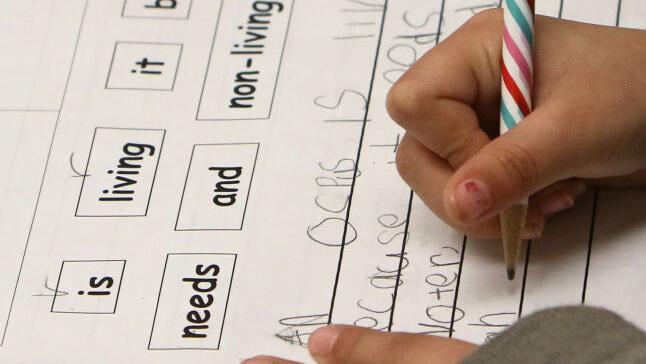PHOENIX — It is now up to Gov. Doug Ducey to decide whether parents can sue teachers who they believe have “usurped” their rights.
And the governor also will get the last word on whether school librarians have to tell parents what books their children are checking out.
The party-line votes Monday by the Republican-controlled House to allow lawsuits against educators came over objections from two Democrats, one a current teacher and the other a former teacher, who said they were concerned specifically about HB 2161. That’s the measure by Rep. Steve Kaiser, R-Phoenix, which guarantees parents have access to both school records as well as the surveys that are given to children in the classroom.
But it is the verbiage about lawsuits from parents who may be unhappy with what their children are hearing that they say concerns them.
As sent to Ducey following prior Senate approval, the measure says that schools “shall not interfere with or usurp the fundamental right of parents to direct the upbringing, education, health care and mental health of their children.”
In fact, HB 2161 is even broader than that.
More than teachers affected
It applies that same restriction — and the same right of parent to sue — to any official at any level of government.
And the legislation says once a lawsuit is filed, the burden is then on the public employee to prove both that the action is “essential to accomplish a compelling government interest of the highest order” and that the action is “narrowly tailored and is not otherwise served by a less restrictive means.”
Rep. Jennifer Pawlik, D-Chandler, a former elementary school teacher, said educators work to build trust with their students.
“As trusted adults, sometimes students share personal information with their teachers,” she said.
“One part of our job is to keep students safe,” she said. And Pawlik pointed out that some of the more onerous provisions of the measure have been removed, like requiring teachers to “out” students who come to them to say they question their sexual identification.
And she pointed out that state law already requires teachers to report things like suspected incidents of child abuse.
“But I still worry that the bill compromises the trust that teachers build with their students,” she said, calling it “very concerning” that parents who believe that someone “usurped” their rights to decide the beliefs of their children.
‘Not teachers’ rights’
The measure moves in the wrong direction, said Rep. Judy Schweibert, D-Phoenix, a high school teacher.
“As leaders in our legislature, I believe we need to instead be working to ensure that teachers and parents are working together for the benefit of their students, as I think is the general rule,” she said. By contrast, Schweibert said HB 2161 “sends a message of division.”
But Rep. Walt Blackman, R-Snowflake, reminded colleagues that the whole purpose of the measure is the rights of parents, “parents’ rights to know what’s going on with their children in school.”
“Not teachers’ rights,” he said.
“Parents have a right to know every single thing that’s being said, taught, looked at, what have you with their kids, because it’s their kids,” Blackman said. “As a parent, I want to make sure that I know everything that’s going on in that school and everything that’s being reported, and everything that that teacher is saying to my child.”
Kaiser, in proposing the legislation, said much of the impetus comes from reports about what students were being asked in surveys.
As approved, HB 2161 says that any time there is a survey the school must provide a copy to a student’s parent, along with a written consent form which would have to be signed prior to the questions being given to their child.
Cathi Herrod, president of the Center for Arizona Policy, which supports the measure, said in a prepared statement after the vote that it makes sense.
“If schools want to know if there are guns in the home, how much money the parents make, or if they get along, they can ask the parents themselves,” she said. “Surveys would no longer be used as an end-run around parental rights in public schools.”
Library access
HB 2439, which also had been previously approved by the Senate before Monday’s House vote, deals with a different aspect of parental involvement in education.
It says that, beginning in 2023, every school board must adopt procedures for parents to access the school’s library collection of available books and materials.
Also, beginning in January, any time a school purchases new books it must provide a list within 60 days.
But the proposal by Rep. Beverly Pingerelli, R-Peoria, also says that parents are entitled to receive a list of all books and materials borrowed from the school library by their children.
“This is an important parental rights bill,” she said during Monday’s vote. “It’s a transparency bill that our neighborhood schools need.”
Pingerelli, who serve on the governing board of the Peoria Unified School District, said there was a time when it was considered “burdensome” for schools to post the grades for every quiz and homework assignment.
“Now it is simply the standard and no one could imaging going backwards,” she said. “In a few years, this, too, will be the standard expectation.”
The legislation does exempt schools without a full-time library media specialist of both the requirement to post what’s available to students as well as provide parents with a list of what their children are borrowing.
That same exception applies to schools that have agreements with public libraries.





